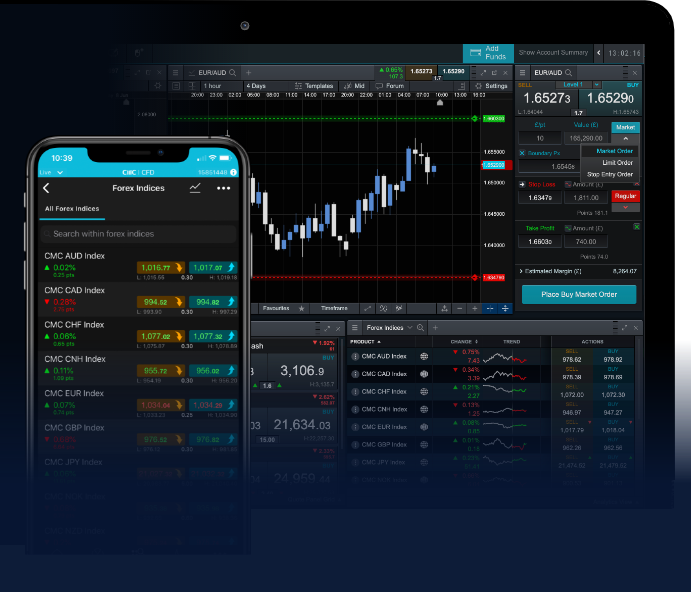Mastering Forex Trading Strategies, Tips, and Insights 1743442969

Mastering Forex Trading: Strategies, Tips, and Insights
Forex trading is one of the most dynamic forms of investment available today, enabling traders to benefit from currency fluctuations on a global scale. As you embark on your trading journey, it’s crucial to understand the fundamentals and develop effective strategies. One resourceful site that can aid you in your trading experience is trading forex Trading Broker ID, which provides essential information about different brokers and trading platforms. This article will delve into various aspects of forex trading, including market analysis, trading strategies, and risk management, aimed at both newcomers and seasoned traders.
Understanding the Forex Market
The foreign exchange market, or forex, is the largest financial market in the world, with a daily trading volume that exceeds $6 trillion. Unlike stock markets, which have specific trading hours, the forex market operates 24 hours a day, five days a week, allowing traders to speculate on currency pairs at any time. The forex market is decentralized, meaning it is not located in a centralized exchange but rather consists of a global network of banks, financial institutions, corporations, and individual traders.
Currency Pairs
In forex trading, currencies are traded in pairs. The first currency in the pair is known as the base currency, while the second is the quote currency. For example, in the currency pair EUR/USD, Euro (EUR) is the base currency, and the US Dollar (USD) is the quote currency. The price of the currency pair indicates how much of the quote currency is needed to purchase one unit of the base currency. Understanding currency pairs is crucial as it allows traders to analyze market movements effectively and identify trading opportunities.
Types of Analysis
Successful forex trading hinges on thorough market analysis. There are three primary methods of analysis that traders use to gauge market movements:
1. Fundamental Analysis
Fundamental analysis involves evaluating economic indicators, geopolitical events, and financial news to predict currency movements. Key factors include interest rates, inflation rates, employment data, and Gross Domestic Product (GDP). Traders who focus on fundamental analysis strive to understand the underlying reasons behind currency fluctuations.
2. Technical Analysis
Technical analysis is centered around the study of historical price data and various technical indicators. Traders use charts and various indicators such as moving averages, Relative Strength Index (RSI), and Fibonacci retracements to identify trends and potential price reversals. This method assumes that past price movements can indicate future performance.
3. Sentimental Analysis
Sentimental analysis focuses on the overall market sentiment towards a currency pair. Traders gauge sentiment by analyzing news reports, social media trends, and even trader positioning to understand how the majority feel about a particular currency. This can provide insights into potential reversals or continuations in trends.
Developing Trading Strategies
To succeed in forex trading, developing a robust trading strategy is essential. Here are a few common strategies that traders often employ:
1. Scalping
Scalping is a short-term strategy that involves making multiple trades throughout the day to capitalize on small price movements. Traders using this strategy often hold positions for just a few seconds to minutes, aiming for quick profits.
2. Day Trading

Day trading involves opening and closing positions within the same trading day. This strategy minimizes the risk of holding overnight positions that might be affected by unexpected news or events.
3. Swing Trading
Swing trading is a medium-term strategy where traders aim to capture price movements over several days to weeks. Traders identify potential “swing” points in the market where the price is likely to change direction.
4. Position Trading
Position trading is a long-term strategy that involves holding positions for months or even years. Traders who adopt this strategy often focus on fundamental factors and broader market trends rather than short-term fluctuations.
Risk Management
Effective risk management is vital for long-term success in forex trading. Here are some key principles to consider:
1. Set Stop-Loss Orders
Stop-loss orders are automated orders that close your position at a specific price level to mitigate losses. Setting stop-loss levels ensures that emotion does not dictate trading decisions.
2. Diversify Your Portfolio
Diversification entails trading multiple currency pairs instead of focusing exclusively on one to spread risk. A diversified portfolio can mitigate the impact of a losing trade.
3. Use Leverage Cautiously
Leverage can amplify both gains and losses. It’s pivotal to use leverage wisely and not to overexpose your trading capital. Many traders recommend using leverage conservatively, especially when starting.
Choosing a Forex Broker
Selecting a reputable forex broker is a crucial step for any trader. A good broker should be regulated, offer a user-friendly trading platform, and provide excellent customer service. Additionally, traders should consider the trading fees, spreads, and available trading tools. Resources like Trading Broker ID can assist you in comparing different brokers and making an informed choice.
The Importance of Continuous Learning
The forex market is ever-evolving, and continuous learning is paramount to stay ahead. Traders should invest time in education, whether through online courses, books, or webinars. Staying updated on market trends and economic news can provide valuable insights that may influence trading strategies.
Conclusion
Forex trading offers immense opportunities for profit but also carries significant risks. By understanding the market, developing effective strategies, and employing solid risk management practices, you can improve your chances of success. Remember that the journey of a forex trader is a marathon, not a sprint; patience, discipline, and continuous learning are paramount. Equip yourself with the right tools and resources, and embark on your forex trading journey with confidence.



